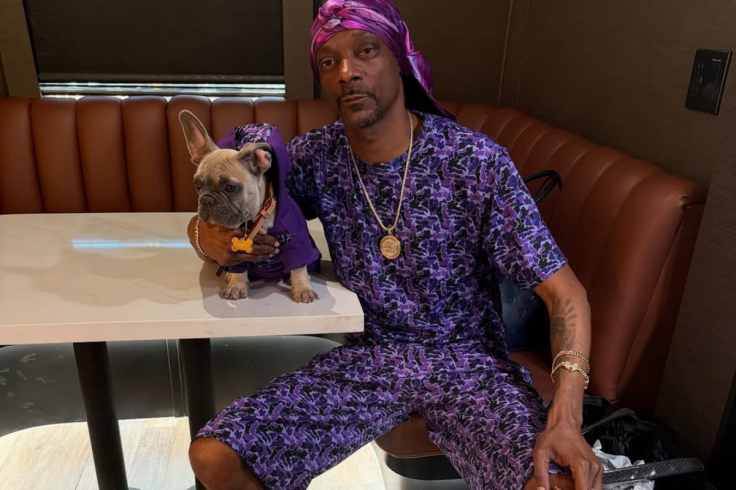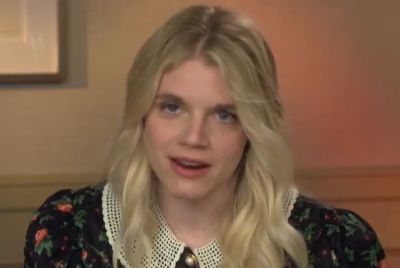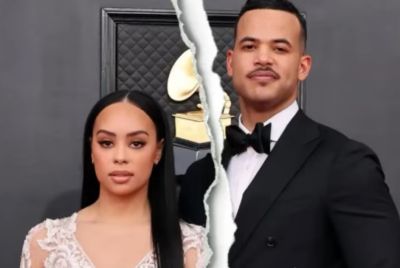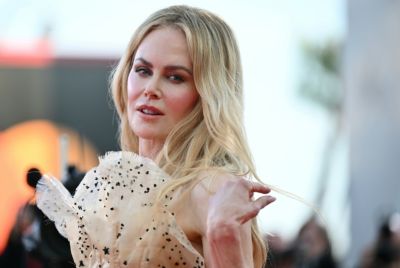Is Snoop Dog Homophobic? Rapper Claims He Is 'Scared' To Watch Movies With LGBTQ Representation
The rapper referenced Disney's Lightyear (2022), which included a same-sex kiss, as an example

Rapper Snoop Dogg has ignited debate with remarks about LGBTQ+ representation in children's films, stating he is scared to go to the movies due to what he perceives as excessive inclusion of such themes.
The comments, made during a recent interview, have drawn mixed reactions, with some accusing the artist of homophobia while others defend his right to express concern.
But what are the context of Snoop Dogg's statements, public and industry responses, and the broader implications for Hollywood's approach to diversity?
Context of Snoop Dogg's Statements
Snoop Dogg, whose real name is Calvin Broadus Jr., made the remarks in an interview on 24 August 2025, discussing his discomfort with LGBTQ+ representation in films aimed at younger audiences.
He stated, 'I'm ... scared to go to the movies,' citing concerns about exposing his grandchildren to such content. The rapper referenced Disney's Lightyear (2022), which included a same-sex kiss, as an example, claiming Hollywood is forcing such storylines.
According to The Hill, Snoop Dogg clarified that his issue lies not with the LGBTQ+ community but with the perceived imposition of these themes in children's entertainment. He suggested that such content should be reserved for adult-oriented films.
This stance has raised questions about whether his comments reflect personal discomfort or broader homophobic sentiments, a charge he has not directly addressed.
Public and Industry Reactions
Responses to Snoop Dogg's comments have been polarised. On X, @PageSix reported, 'Scared' Snoop Dogg slams LGBTQIA+ storylines in kids' movies: 'They're putting it everywhere'.
‘Scared’ Snoop Dogg slams LGBTQIA+ storylines in kids’ movies: ‘They’re putting it everywhere’ https://t.co/kXXm229MBa pic.twitter.com/UMReA86xws
— Page Six (@PageSix) August 25, 2025
Similarly, @polizeros criticised the rapper, stating, 'Former universally liked gangster rap icon continues to incinerate his reputation and is now scared of lesbian animation characters'. These posts reflect a sentiment among some that Snoop Dogg's remarks risk alienating fans and align with anti-LGBTQ+ rhetoric.
Former universally liked gangster rap icon continues to incinerate his reputation and is now scared of lesbian animation characters.
— Bob Morris🌵☀️ (@polizeros) August 24, 2025
""So it’s like, fuck me, I’m scared to go to the movies now," Snoop said"https://t.co/2lPipZrlEs
Conversely, supporters like @BurnEr92976227 praised him, saying, 'Speak on it,' suggesting his comments resonate with those who share his concerns about age-appropriate content.
👊🏿Speak on it.
— The Union of Black America (@BurnEr92976227) August 25, 2025
“Snoop Dogg says he's "scared to go to the movies" due to what he perceives to be an increase in LGBTQ+ representation in children's films.”https://t.co/c9R4jhXH6s pic.twitter.com/54Dx7CarKh
Industry figures have also weighed in.
Australian Senator Sarah Hanson-Young called for Snoop Dogg's removal from the Australian Football League Grand Final, branding him a 'slur merchant' for his remarks. These reactions reflect the polarised views on Snoop Dogg's position, with some seeing it as a legitimate concern and others as intolerance.
Implications for Hollywood and Representation
Snoop Dogg's comments come amid ongoing debates about diversity in media. A 2024 study by the University of Southern California found that 15% of children's films in the past decade included LGBTQ+ characters, a rise from 2% in the 2000s.
This shift reflects Hollywood's response to calls for inclusive representation, but it has also sparked backlash from some audiences. The controversy surrounding Snoop Dogg underscores the challenge of balancing creative freedom with societal expectations. Disney, for instance, faced criticism for its handling of Lightyear, with some markets banning the film due to its same-sex kiss scene.
The debate also highlights the financial stakes. Statista data indicates 38% of Gen Zers think that movies should include more LGBTQ+ characters, suggesting that inclusivity can be commercially viable.
However, Snoop Dogg's remarks may embolden critics who argue that such content risks alienating certain demographics. As Hollywood navigates these tensions, the rapper's comments serve as a flashpoint in a broader cultural conversation about representation and creative control.
© Copyright IBTimes 2025. All rights reserved.




















